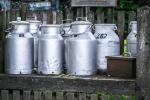H2020 SOILCARE Project: Soil care for profitable and sustainable agricultural production in Europe
- Type Project
- Status Filled
- Execution 2016 -2021
- Assigned Budget 6.999.993,00 €
- Scope Europeo
- Main source of financing Horizon 2020
- Project website Proyecto SOILCARE
To remain competitive, European agricultural production must reduce its environmental impact and use soil-enhancing farming systems. The EU-funded SOILCARE project aims to identify and evaluate effective soil-enhancing farming systems and agronomic techniques that can improve the profitability and sustainability of the European agricultural sector.
The project will employ a transdisciplinary approach to assess the advantages and disadvantages of a new generation of soil-enhancing cropping systems, taking into account all relevant biophysical, socioeconomic, and policy factors. SOILCARE will analyze existing literature, monitoring data, and long-term experiments to develop an inclusive methodology for assessing cropping system performance at multiple levels.
In addition, it will evaluate promising cropping systems for soil improvement in sites with diverse soil and climate conditions, located in 16 study areas across Europe.
The first major outcome of SoilCare is scientifically proven, soil-enhancing cropping systems. The selection of SICS for testing was done in collaboration with multi-sector panels established at all SoilCare study sites. The selected SICS were monitored for three seasons, and an online database was developed to collect monitoring data from the study sites and facilitate their analysis. A methodology was developed and applied to evaluate the success of SICS, considering their benefits, drawbacks, cost-effectiveness, soil quality, and overall sustainability. Conclusions: Overall, the monitoring results show a small positive impact of SICS on the environment and soil quality, no effect on the economy and sustainability, and a small negative impact on the sociocultural dimension.
Since SICS are intended to benefit society as a whole, the analysis of their effectiveness should not be limited to the farm level, but should consider all ecosystem services, both local and external, in order to assess the social costs and benefits of their implementation.
Another important outcome is a greater understanding of the factors influencing SICS adoption. The advantages and disadvantages of policies and policy instruments as drivers of SICS adoption were analyzed. Through workshops and collaboration with think tanks, policy alternatives and complementary actions were identified, both at the EU and think tank levels, that could facilitate SICS adoption. Interviews were conducted with European stakeholders to explore the drivers of change and related uncertainties that may affect adoption. In selected think tanks, in-depth studies on the societal factors influencing adoption were conducted. EU-level scenario workshops were used to design exploratory scenarios describing possible future states of Europe, as a basis for assessing the adoption and effectiveness of different types of policy instruments.
Conclusions on adoption: The results confirm the crucial role of social factors such as trust in adoption and also underline the need for policies that support and facilitate a transition to more sustainable agricultural practices in a coherent manner. Policies must define long-term ambitions and objectives and facilitate the transition to sustainable practices. To achieve this, synergies between policies must be better exploited, learning and knowledge sharing for farmers must be facilitated, and monitoring and enforcement must be improved. A final key output of SoilCare is a spatially explicit Integrated Assessment Model (IAM) that allows the impact of farming systems and agronomic measures to be assessed across Europe.
The IAM provides an understanding of the impact of climate change and socioeconomic developments on the future evolution of land use, management practices, vegetation, and soil conditions. It also offers users the ability to intervene in the system and assess the impact of policy, planning, and management options on profitability and sustainability indicators. An interactive mapping tool has also been developed that allows users to select SICS for different locations in Europe by exploring SoilCare's IAM results maps. This tool contains interactive maps showing which SICS can be applied at each location in Europe.
This tool is particularly useful for national and EU decision-makers and can be used with the future scenarios developed in the project to identify the best policy actions. The interactive tool can be accessed through the SoilCare website. Conclusions from the implementation of the IAM: Simulations show that scenarios prioritizing sustainability (through the selection of specific SICS) result in improved soil quality and improved environmental conditions. While SICS would be profitable for society in the long term, they might not always be profitable for farmers in the short term. Under these conditions, the adoption of SICS would require some form of compensation and support for farmers.
The main outputs of SoilCare can be found on the SoilCare Information Hub (www.soilcare-project.eu), the central portal for communicating project results. It offers a multilingual platform for knowledge dissemination as a project legacy. The Hub directs the target audience to information, data, and tools at the level that best suits their interests. Resource pages for farmers, policymakers, and researchers contain various dissemination materials, such as fact sheets, brochures, videos, assessment tools, policy briefs, and practical information on SICS for farmers. These materials have been widely disseminated among interested followers through social media, among study participants and their community farming networks, and among the project partners' networks.
European agricultural production faces the challenge of remaining competitive while reducing negative environmental impacts. Currently, production levels in some cropping systems are maintained through increased use of inputs and technology, which masks productivity losses due to poorer soil quality. This increased use of inputs can reduce profitability due to its costs, in addition to negatively impacting the environment.
The choice of cropping systems and agronomic techniques is influenced by external factors such as soil and climate conditions, markets, and policies, and has significant consequences, as it impacts soil quality and the environment. The overall objective of SoilCare was to assess the potential of soil-enhancing cropping systems (SICS) and to identify and test site-specific SICS that are expected to have positive impacts on profitability and sustainability in Europe.
The planned key results were:
- Scientifically proven soil improvement cultivation systems.
- Guidance on improving land governance to minimize and overcome barriers to the adoption of these techniques.
- Spatially explicit interactive mapping tool to identify the opportunities and effects of implementing which SICS where in Europe
European agricultural production must remain competitive while reducing environmental impacts, which requires the development and adoption of effective soil-enhancing cropping systems. The overall objective of SOILCARE is to identify and evaluate promising soil-enhancing cropping systems and agronomic techniques that increase profitability and sustainability at all scales in Europe. A transdisciplinary approach will be used to assess the benefits and drawbacks of a new generation of soil-enhancing cropping systems, incorporating all relevant biophysical, socioeconomic, and policy aspects.
Existing information from the literature and long-term experiments will be analyzed to develop a comprehensive methodology for assessing the performance of cropping systems at multiple levels. A multi-stakeholder approach will be used to select promising soil-enhancing cropping systems for scientific evaluation at 16 study sites across Europe covering different pedoclimatic and socioeconomic conditions. The implemented cropping systems will be monitored with stakeholder participation and evaluated jointly with scientists.
Specific attention will be paid to the adoption of soil-enhancing cropping systems and agronomic techniques within and across study sites. Results from the study sites will be scaled up to the European level to draw general lessons on the potential applicability of soil-enhancing cropping systems and the related impacts on profitability and sustainability, including assessing barriers to adoption at that scale. An interactive tool will be developed for end-users to identify and prioritize suitable cropping systems for soil improvement anywhere in Europe.
Current policies and incentives will be assessed, and specific policy recommendations will be provided. SOILCARE will adopt an active dissemination approach to achieve impact from the local to the European level, targeting multiple audiences, to improve crop production in Europe and remain competitive and sustainable through dedicated soil care.
The main impacts of SOILCARE are that:
- Scientifically proven SICS have been identified at the study sites, which represent the different pedoclimatic zones and socioeconomic conditions in Europe.
- Information is obtained on how barriers to adopting SICS can be overcome.
- The opportunities and effects of enlargement and adoption at European level are assessed.
The adoption of SICS has the potential to improve soil quality with reduced external inputs and a decrease in soil degradation and pollutant emissions into the environment. However, no positive impacts on the profitability and competitiveness of European farmers at the farm level were found in the short term (<3 years). However, the economic analysis should not be restricted to agricultural economics but should also consider other ecosystem services, both in situ and off-site, in order to assess the societal costs and benefits of SICS.
Model simulations indicated that the societal benefits of SICS outweigh the costs in the medium and long term (2030-2050). Therefore, while SICS would be profitable for society in the long term, they may not always be profitable for farmers in the short term. Under these conditions, the adoption of SICS would require compensation and support for farmers, as well as policies that encourage the use of sustainable farming systems.
- STICHTING WAGENINGEN RESEARCH (WR)







